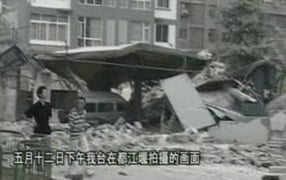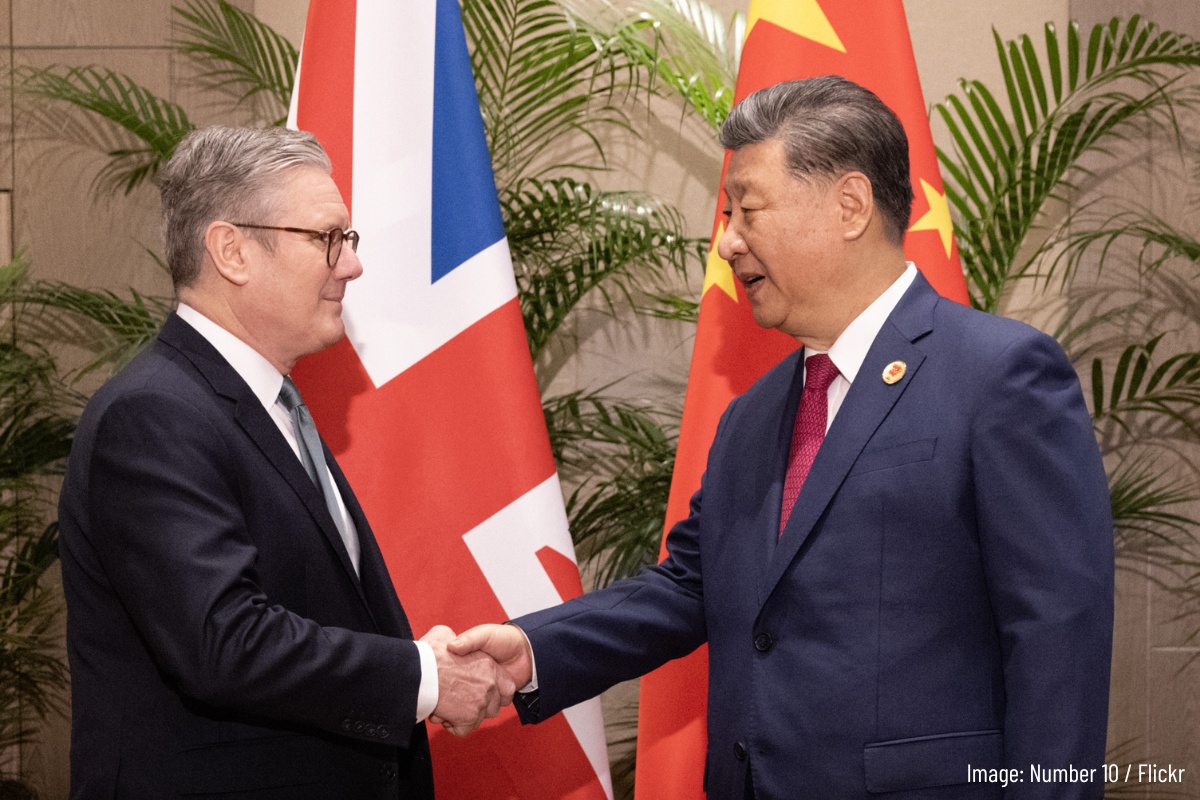[NB: The following article is a personal view, and does not reflect the position of the editorial board. To read the position of the International Marxist Tendency on China see
China’s long march to capitalism, a document agreed on at the World Congress 2006.]
Following a massive earthquake measuring
7.9 of the Richter scale, a collective shock and grief has gripped China. The
epicentre of the quake was Wenchuan County in the Ngawa
Tibetan and Qiang Autonomous Prefecture; the majority of people here are ethnic
Tibetans. A new mood of mutual solidarity has been born throughout the
nation, strengthened by the fact that the quake was felt as far away as
Beijing. Present figures are; over 20,000 dead, 25,000 buried under rubble,
14,000 missing, and 64,000 injured. The death toll looks set to rise to over
50,000.
The year of the
Olympics is proving to be one full of complex and difficult challenges in
China. Following clashes in Tibetan areas earlier this
year, the Dalai Lama’s special envoy Kelsang Gyaltsen
held talks with Chinese Government representative Zhu
Weigun in Shenzhen. Kelsang threw himself on the ground prostrating as
they visited a Buddhist Temple; China’s Zhu copied him.
The Lama’s envoy said,
“I
didn’t know you’re a Buddhist!”
“Yes
your holiness, I am a believer but not practising.”
The envoy continued,
“But
I thought you’re a communist?”
“Yes
I am, practising but not believing.”
This story, originally from Eastern Europe,
illuminates the central problem in China. That problem is the difference
between the official communist doctrine which provides the raison d’etre for
the Party’s rule, and the reality of capitalist forces corrupting the heart of
much of China’s government. The government is under intense pressure to defend
the rights and raise the living standards of the urban workers and rural poor.
The quake will greatly intensify this pressure.
Premier Wen Jiabao has been known to trick
his entourage, demanding they stop in random villages and towns for ‘toilet
breaks’. He invents prostate problems as an excuse to talk with peasants and
workers who have not been ‘prepared’ for his visit, in order more accurately to
assess the popular mood. Wen Jiabao is not new to crisis response. Back in 1989
he stood alongside the former General Secretary Zhao Ziyang when he warned the
students on Tiananmen Square of an impending crackdown, for which Zhao was
placed under house arrest until his death in 2004. Wen
Jiabao has again been the public face of the government, shedding tears and
racing to the disaster scenes to help out and raise morale.
Within an hour of the
news of the Sichuan earthquake, Wen Jiaobao was on a plane to the region and is
in charge of rescue and relief work. The way Ministries and government units
swept into action, reveals much about the nature of the Chinese state. Over
100,000 troops rushed to the region and saved thousands of lives from the
rubble. The military-bureaucratic power of the state is intact, efficient and
has shown itself sensitive enough to respond effectively to the various crises
that have erupted this year. Just compare their response with the inaction of
the Burmese junta in the face of the recent cyclone, or the incompetence of the
US administration when Hurricane Katrina hit New Orleans.
The disaster relief
response of the Standing Committee of the Political Bureau of the Communist
Party Central Committee was rapid and determined. Mobilization took place under
three concepts, “putting people’s
interests above everything,” the “scientific
attitude in response to calamities” and reliance on “the united will of the people”.
New regulations on government information disclosure introduced on May 1st appear to have initiated a sort
of Chinese ‘glasnost’ (the period of ‘openness’ which Gorbachev introduced in
the USSR in the late 1980s.) Already groups of workers have used the new
regulations to demand information on the corrupt transfer of assets from State
Owned Enterprises to private companies. Anger concerning the ‘original sin’ (as
Marx called primitive accumulation) of capitalist acquisition in China is
widespread and threatens the power of the new rich who acquired wealth through
deals with corrupt officials, or were themselves formerly such officials.
According to a poll conducted by SINA.com and China Youth Daily 77% of the
public want information about the ‘assets of government officials’ and 66% of
people said they would apply for such information if they need it. Thus an
enquiry into the origin of capitalist accumulation appears inevitable. The
consequences of this will be decided by living struggle.
The English ‘Financial Times’ the world’s
leading bourgeois newspaper sees ominous signs.
“To
the casual observer, the blanket earthquake news coverage served up by China’s
media over the past few days might suggest the nation’s thousands of newspapers
and TV stations had been given a free hand to report its biggest natural
disaster in decades.”…
“Nothing
could be further from the truth.”
We are told it is, “a reminder that- in spite of a flourishing market economy, social
liberalization and a media revolution – the Party still holds to the Maoist
tenet that power depends on control of ‘two barrels’: that of the gun and the
pen.” (FT May 14th 2008)
The ‘Financial Times’ continues its
horrified tone when quoting the language of the Chinese press, which calls for,“broadly mobilizing the lead cadres and the
masses to implement the spirit of the central authorities”.
What our friends at the ‘Financial Times’ fear
is not the pro-government line advocated by the Chinese media. Rather they fear
that under pressure from the masses the Chinese Communist Party might turn its
back on the economic line advocated for China by international capitalism.






